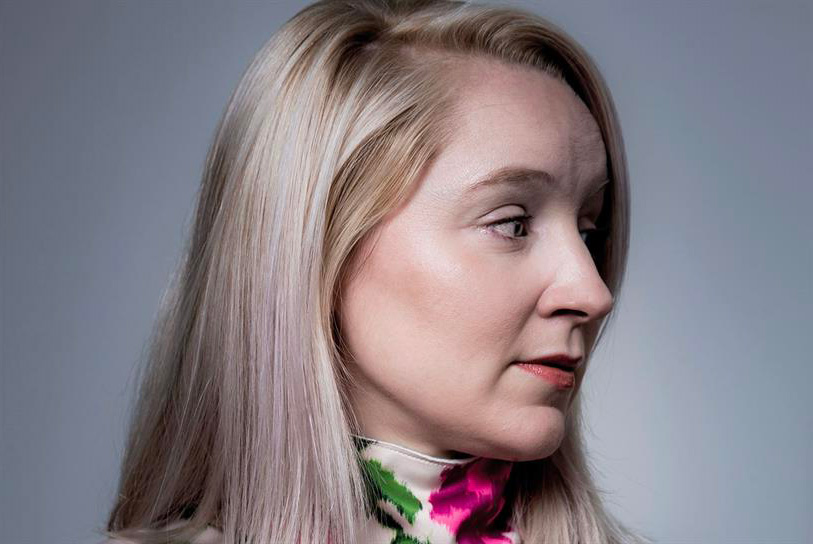Wake up from the IWD daydream

Opinion
As the honest truth of women’s lived experiences keeps being swept aside, the media industry risks confusing talking about change with actual change.
If you told the truth about yourself, who would you be? Are you genuinely committed to being or becoming an inclusive leader? Or are you more comfortable waxing lyrical about the importance of water-cooler moments, while working mothers continue to drown under the economic and emotional pressure of the juggle?
The media industry loves a pithy headline: It’s OK to not be OK. But are we OK with the fact that 93% of women say a lack of work-life balance has negatively impacted their mental health?
This staggering statistic was unearthed in Bloom’s The Juggle research, the industry’s biggest consultation into women’s work-life balance through an intersectional lens. The research lays bare the gap between rhetoric and reality when it comes to equality in the media and creative industries.
Don’t just inspire inclusion, insist on it
The official theme for International Women’s Day 2024, from the progressive team at UN Women, was “Invest in women, accelerate progress”. The corporate theme was a flimsier “Inspire inclusion”. It is notable that it was the latter non-committal catchphrase that dominated the agenda.
This action gap means that a broken system continues to break women’s careers. Yet, rather than recognising and addressing this endemic industry-wide issue, the honest truth of women’s lived experiences is swept aside as “too negative”.
When you consider the voices that aren’t in the room, from the swathes of women squeezed out of the industry, this approach is unsustainable. In order to create policies that will stop pushing women off a career cliff, we have to face up to the truth of their situation.
Women are burdened with unrealistic expectations to lean in to systems and structures that sabotage their opportunity for growth at every step. It also collectively robs the industry of the introspection and accountability necessary to drive genuine change.
Generation Overwhelm
This is particularly urgent at a time when companies are mandating a return to office in the midst of a wholesale collapse of the UK’s childcare infrastructure.
As SheSays’ Defining the Future of Work research underlined this week, 54% of respondents said flexible working is the one thing that is better about work for underrepresented people. Yet many media leaders remain fixated on those “water-cooler moments”.
It remains to be seen if companies dedicated to monitoring in-office attendance are placing the same magnifying glass on the impact of their policies. Or the impact of the everyday sexism that women experience in the industry — those thousand tiny paper cuts that leave women in the “messy middle” of their careers seeking an escape route.
Data from the Office for National Statistics shows that, for the first time in decades, the number of women leaving the workforce to look after family has increased. For women aged 25-34, it has increased by 12.6% in the last year.
More than half of all mothers have faced some form of discrimination while pregnant, on maternity leave or on their return to work, according to campaign group Pregnant then Screwed.
Not enough action
In 2017, Victoria Brooks, the then vice-president of Bloom, launched the first-ever “Booth of Truth”, to which women could write and share their experiences of sexual harassment, maternity discrimination, grief and abuse of power. The stories they told were overwhelming.
Victoria’s care and compassion created a space where women could open the doors on experiences that had been suffocated and silenced for too long. Stories that, as a collective, served to remind women across the industry that they were not alone.
Yet, six years later, these stories are still being told. And while we may have more conversations about change, that talk has not translated to action.
From sexual harassment to maternity discrimination, women across the industry continue to experience the sharp edges of inequality. And non-disclosure agreements continue to silence them.
It’s not just about men
It is important to recognise that this is not just about the abuse of power by men. Being a woman doesn’t automatically make you a great ally or an inclusive leader. The truth, however uncomfortable, is that women are just as capable of perpetuating toxic systems of inequality as men.
If, as organisations and individuals, we are genuinely committed to changing the experience of women in the industry, then we must do things differently. Treat women not as if they have an expiration date but welcome their wisdom. Invest in women-owned businesses and support more flexible and compassionate approaches to work.
Now is the time to recognise that leaders who believe it’s OK to paper over the honest truth of women’s lived experiences are part of the problem, whatever their gender.
It shouldn’t need to be International Women’s Day, Mother’s Day or Women’s History Month for me to tell you a catchy slogan isn’t enough to change the experience of women in media.
So, leaders, before you line up another punchy headline or pithy statement, ask yourself honestly: what are the proof points that you are really setting women up to thrive in your organisation?
Because the women you work with deserve far more than empty platitudes.
 Nicola Kemp has spent over two decades writing about diversity, equality and inclusion in the media. She is now editorial director of Creativebrief. She writes for The Media Leader each month.
Nicola Kemp has spent over two decades writing about diversity, equality and inclusion in the media. She is now editorial director of Creativebrief. She writes for The Media Leader each month.
Career Leaders: The Media Leader‘s weekly supplement with thought leadership, news and analysis dedicated about media careers, training, development and wellbeing.
Sign up to our daily bulletin for free to ensure you stay up to date and get Career Leaders every Tuesday.





